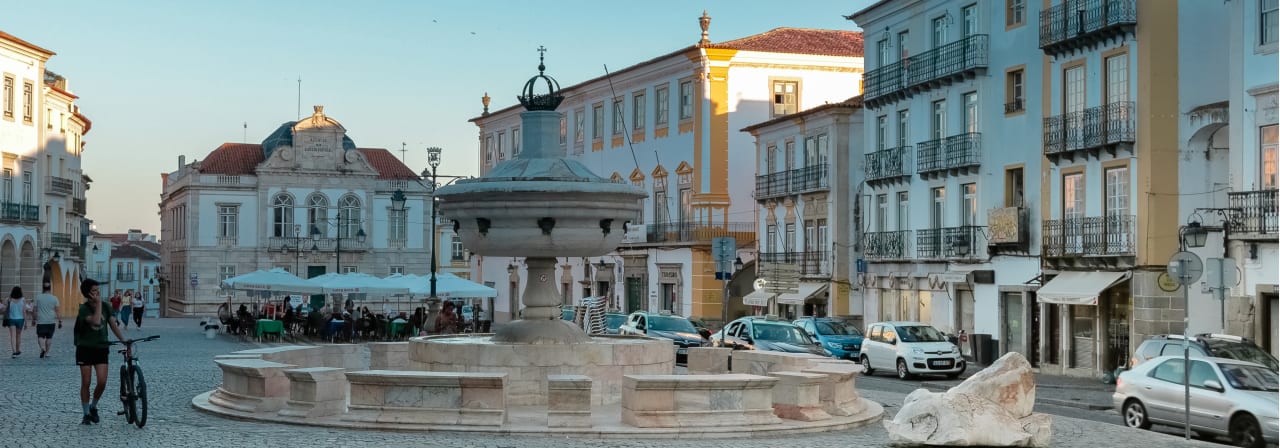The University of Evora is a public university in Évora, Portugal. It is the second oldest university in the country, established in 1559 by Cardinal Henry, and received University status in April of the same year from Pope Paul IV, as documented in his Cum a nobis papal bull.
Mission
The University of Évora is one of the universities belonging to the Portuguese public higher education system. As such, its mission involves:
- The production of knowledge through scientific and artistic research, experimentation and technological and humanistic development;
- The socialization of knowledge, providing the traditional student population, as well as the working population, with academic qualification through undergraduate, master's and doctoral courses, ad hoc training courses and informal training throughout life;
- The transmission of knowledge to the community, fostering innovation and business competitiveness, the modernization of public services, as well as the social and cultural development of the broader community.
Vision
The vision of the University of Évora favors the region background, the Alentejo, in which operates, choosing it as the preferred target of its effort to socialize knowledge; shares identical human, cultural and scientific values with the European Community; prioritize strategical alliances with the neighboring regions; seeks to expand its mission into the Portuguese-speaking countries, not forgetting, at the same time, the current challenges related to a global “world” for which the students must be well-prepared.
Values
The University of Évora adopts the principle of the free “inquiry” as defined by Henri Poincaré, in the pursuit of the tasks arising from its mission:
“Thinking must never submit itself, neither to a dogma, nor to a party, nor to a passion, nor to an interest, nor to a preconceived idea, nor to anything whatsoever, if not to facts themselves, because for it to submit to anything else, would be the end of its existence.”
Moreover, the University of Évora's intrinsic values are:
- Respect for human dignity;
- Academic freedom;
- Individual merit;
- The rigor in the execution of any tasks;
- The democracy underlying the decision;
- The absence of social, ethnic or confessional discrimination.
Anchor Areas
Having as its mission the transmission and production of knowledge, and basing its strategies on the regional context in which it operates, the University of Évora bases its performance on 4 anchor areas that distinguish it from other Portuguese public higher education institutions.
- Mediterranean and Environment: based on the idea that more important than knowing the territory and its geoclimatic characteristics, it is to preserve this cultural space resulting from a rich civilizational confluence that bequeathed us its heritage and traditions.
- Material, Intangible and Human Heritage: celebrates the different types of expressions, practices, knowledge and representations that, passed from generation to generation, manifest a sense of identity and contribute to respect for cultural diversity and human creativity.
- Paths of Life and Well-Being: promotes, in the area of health, a plural approach that focuses on specialized training and is attentive to the care provided for the individual's quality of life.
- Aerospace and Digital Transformation: it encourages, with an eye to the future, technological evolution, and transversal to all areas of society.

